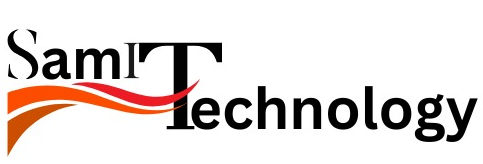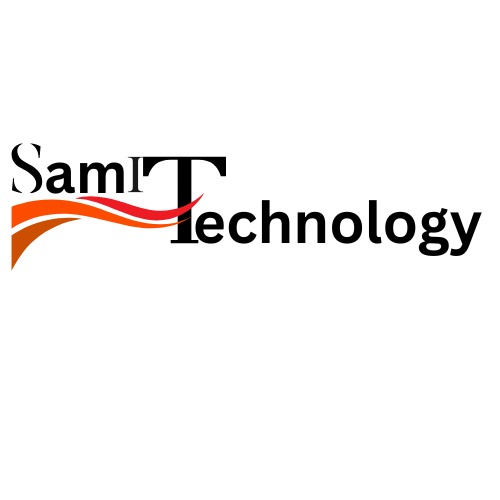Salesforce CRM Cloud Developer
A Salesforce CRM Cloud Developer is a skilled professional responsible for designing, developing, customizing, and maintaining applications on the Salesforce platform. They leverage Salesforce CRM tools and cloud technologies to build scalable business solutions that improve customer engagement, streamline business processes, and integrate with enterprise systems. Salesforce Developers work with Apex (Salesforce’s proprietary programming language), Visualforce, Lightning Web Components (LWC), and various APIs to deliver custom features and automation tailored to organizational needs. They collaborate with administrators, architects, and business stakeholders to translate business requirements into technical solutions, ensuring optimal use of Salesforce’s Sales Cloud, Service Cloud, Marketing Cloud, or other specialized modules. Key tasks often include building custom applications, creating workflows and triggers, integrating third-party tools, optimizing database queries, and ensuring the overall performance and security of Salesforce applications.
Course Objectives of Salesforce CRM Cloud Developer Training
The Salesforce CRM Cloud Developer course is designed to help learners build a strong foundation in Salesforce platform development while gaining hands-on experience with real-world applications. The objective is to ensure participants can design, customize, and deploy cloud-based CRM solutions that align with modern business requirements. This course not only focuses on programming with Apex and Lightning Web Components but also emphasizes automation, integration, and application lifecycle management. By completing this Salesforce CRM Cloud Developer Training Hyderabad, learners will be able to confidently contribute as Salesforce Developers in enterprise environments, bridging the gap between business needs and technical solutions.
Key Objectives & Learning Outcomes
Gain Expertise in Salesforce Cloud – Understand Salesforce ecosystem, architecture, CRM features, and business use cases.
Custom Application Development – Build scalable apps using Apex, Visualforce, and Lightning Web Components (LWC).
Business Process Automation – Design workflows, process builders, and triggers for smooth operations.
Data Management & Security – Implement security models, role hierarchies, and data integrity best practices.
API & Integration Mastery – Work with REST/SOAP APIs, integration tools, and middleware for cross-platform connectivity.

Salesforce CRM Cloud Developer Course Curriculum
Module 1: Introduction to Salesforce CRM & Cloud Computing
Overview of CRM concepts
Introduction to Salesforce ecosystem and editions
Salesforce Cloud offerings (Sales Cloud, Service Cloud, Marketing Cloud, Commerce Cloud)
Salesforce architecture & multi-tenant environment
Module 2: Salesforce Fundamentals & Navigation
Understanding Salesforce objects: Standard vs Custom Objects
Fields, Relationships, and Schema Builder
Salesforce App, Tabs, and Page Layouts
User roles, profiles, and permissions
Module 3: Data Modeling & Management
Data types and relationships (Lookup, Master-Detail, Junction Objects)
Formula fields and roll-up summary fields
Data Import Wizard & Data Loader
Data validation and integrity
Module 4: Apex Programming
Introduction to Apex & OOP concepts in Salesforce
Writing classes, methods, and variables
SOQL & SOSL queries
Triggers and governor limits
Exception handling and best practices
Module 5: Lightning Platform Development
Introduction to Lightning Experience
Visualforce Pages – basics & custom UI
Lightning Components & Lightning Web Components (LWC)
Event-driven programming in LWC
Styling & advanced UI customization
Module 6: Business Logic & Process Automation
Workflow rules & approval processes
Process Builder & Flow Builder
Automation with Apex triggers & scheduled jobs
Managing complex business logic
Module 7: Integration & APIs
Introduction to Salesforce APIs (REST & SOAP)
Authentication & connected apps
Callouts & integration with external systems
Middleware tools overview (MuleSoft, Informatica, etc.)
Module 8: Security & User Management
Salesforce security model (Profiles, Roles, Permission Sets)
Field-level security & record-level security
Sharing rules & organization-wide defaults (OWD)
Managing users and login policies
Module 9: Testing & Deployment
Writing test classes & unit testing in Apex
Debug logs & troubleshooting
Change sets & deployment process
Salesforce CLI & version control (Git basics)
CI/CD in Salesforce development
Module 10: Real-Time Projects & Case Studies
Building a custom Salesforce app (end-to-end project)
Automating sales pipeline & service requests
Integration with a third-party system
Capstone project presentation
What Will You Learn in Salesforce CRM Cloud Developer Training?
This Salesforce CRM Cloud Developer course is designed to transform learners into skilled Salesforce Cloud Developers by providing both theoretical knowledge and practical expertise. You will learn how to develop, customize, and deploy Salesforce applications that meet business needs while mastering automation, integration, and security. The Salesforce CRM Cloud Developer Training Hyderabad ensures you gain the confidence to work on real-world projects and prepare for Salesforce certifications.
Key Learning Outcomes:
Salesforce Fundamentals – Understand CRM concepts, Salesforce architecture, and different cloud offerings.
Application Development – Build and customize apps using Apex, Visualforce, and Lightning Web Components (LWC).
Business Process Automation – Create workflows, triggers, process builder, and flows for efficiency.
Data Modeling & Management – Design objects, fields, relationships, validation rules, and ensure data integrity.
Integration Skills – Connect Salesforce with external systems using REST/SOAP APIs and middleware tools.
Security & Access Control – Implement user roles, profiles, permission sets, and sharing rules.
Testing & Deployment – Write Apex test classes, debug issues, and deploy apps using change sets & Salesforce CLI.
Hands-on Projects – Work on real-time case studies and build end-to-end Salesforce solutions.
Certification Readiness – Get prepared for Salesforce Developer certifications (Platform Developer I & II).

Benefits of Salesforce CRM Cloud Developer Training
The Salesforce CRM Cloud Developer course offers immense value for anyone looking to build a strong career in cloud computing and CRM development. As organizations across industries adopt Salesforce to streamline sales, service, and marketing operations, the demand for certified and skilled Salesforce Developers continues to grow rapidly. This Salesforce CRM Cloud Developer Training Hyderabad equips learners with the right blend of technical skills, hands-on practice, and industry knowledge to become job-ready professionals.
By gaining expertise in Apex, Lightning Web Components, and Salesforce APIs, you will not only master application development but also learn how to integrate Salesforce with other enterprise systems, making you a versatile professional. The training also prepares you for globally recognized Salesforce certifications, boosting your credibility in the job market.
Industry-Relevant Skills – Gain practical knowledge in Salesforce CRM development, automation, and integration.
High-Paying Career Path – Access lucrative opportunities as Salesforce Developers are among the top-paid IT professionals.
Hands-On Real-Time Projects – Work on case studies and live projects to understand business requirements and deliver solutions.
Certification Support – Get prepared for Salesforce Platform Developer I & II certifications.
Global Recognition – Salesforce is used by Fortune 500 companies, giving you worldwide career options.
Career Flexibility – Choose from multiple roles like Developer, Consultant, Integration Specialist, or Technical Architect.
Who is Eligible for Salesforce CRM Cloud Developer Training
The Salesforce CRM Cloud Developer course is ideal for anyone aspiring to build a career in cloud computing, CRM development, and Salesforce technologies. It is designed to accommodate both beginners and professionals with prior IT experience, making it accessible to a wide range of learners.
Fresh graduates in Computer Science, Information Technology, or related engineering fields can benefit greatly from this course, as it provides the necessary technical skills and hands-on experience to enter the Salesforce job market. IT professionals, software developers, and programmers who want to upskill or switch their specialization to Salesforce development will also find the course highly valuable.
Eligibility Criteria & Ideal Candidates:
Fresh Graduates – Individuals with a degree in Computer Science, IT, Engineering, or related fields who want to start a career in Salesforce.
IT Professionals – Developers, programmers, and software engineers looking to specialize in Salesforce development.
Salesforce Administrators – Those who want to advance their career by moving from administration to development roles.
Business Analysts & Consultants – Professionals aiming to understand the technical side of Salesforce for better solution design.
Career Switchers – Anyone with basic programming knowledge interested in entering the cloud computing and CRM domain.
Prerequisites – Basic knowledge of programming concepts (Java, C#, or similar) is recommended but not mandatory.
Frequently Asked Questions (FAQ) – Salesforce CRM Cloud Developer Training
1. What is Salesforce CRM Cloud Developer training?
This course is designed to teach learners how to develop, customize, and deploy applications on the Salesforce platform using Apex, Visualforce, Lightning Web Components (LWC), and various automation tools.
2. Who can enroll in this course?
Fresh graduates, IT professionals, Salesforce administrators, business analysts, and career switchers with basic programming knowledge are eligible. No prior Salesforce experience is required.
3. Do I need prior programming knowledge?
Basic understanding of programming concepts (Java, C#, Python, etc.) is recommended but not mandatory. The course covers Apex programming from scratch.
4. Will I get hands-on experience?
Yes. The course includes real-time projects, case studies, and exercises to provide practical experience in Salesforce development.
5. Is this course suitable for career switchers?
Absolutely. Individuals from non-Salesforce backgrounds with basic programming knowledge can learn Salesforce development and become job-ready.
6. Can this course help me prepare for Salesforce certifications?
Yes. The course is designed to prepare learners for Salesforce Platform Developer I & II certifications, providing both theoretical and practical knowledge.
7. What job roles can I apply for after completing this course?
Graduates can work as Salesforce Developers, Salesforce Consultants, Integration Specialists, Technical Architects, or CRM Solution Developers.
8. Are there any prerequisites for this course?
No strict prerequisites, but familiarity with basic programming concepts and databases will help you learn faster.
9. Is the course offered online or offline?
Most training providers offer both online and classroom options. You can choose based on your convenience and learning preference.
10. How long does it take to complete the course?
The duration varies by provider, but typically the course can be completed in 6–12 weeks, depending on the pace and mode of training.
Job Roles After Completing Salesforce CRM Cloud Developer Training
After completing this Salesforce CRM Cloud Developer Training Hyderabad, learners gain the technical expertise and practical skills needed to excel in a variety of Salesforce-related roles across industries. The training ensures that you are equipped to handle development, customization, integration, and deployment tasks on the Salesforce platform.
Key Job Roles:
Salesforce Developer – Design, develop, and deploy custom applications using Apex, Visualforce, and Lightning Web Components (LWC).
Salesforce Consultant – Analyze business requirements, suggest Salesforce solutions, and implement CRM strategies for organizations.
Salesforce Administrator – Manage users, security, workflows, and data while supporting development teams.
Salesforce Integration Specialist – Connect Salesforce with external systems and applications using APIs and middleware tools.
Technical Architect – Design scalable and efficient Salesforce solutions, ensuring integration, security, and performance standards.
CRM Solution Developer – Build end-to-end CRM solutions that automate business processes and improve customer experience.
Project Support & Analyst Roles – Assist in Salesforce implementation projects, testing, deployment, and maintenance.

